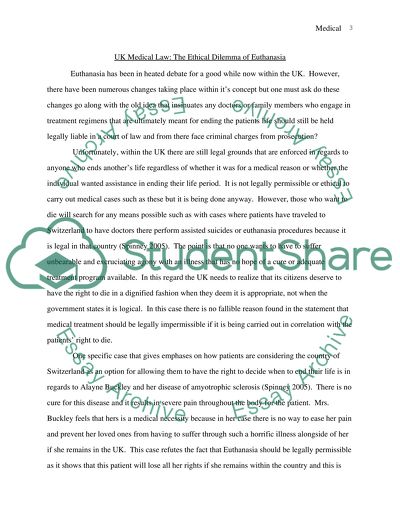Cite this document
(“The UK Medical Law - the Ethical Dilemma of Euthanasia Coursework”, n.d.)
The UK Medical Law - the Ethical Dilemma of Euthanasia Coursework. Retrieved from https://studentshare.org/social-science/1518852-uk-medical-law-master-essay
The UK Medical Law - the Ethical Dilemma of Euthanasia Coursework. Retrieved from https://studentshare.org/social-science/1518852-uk-medical-law-master-essay
(The UK Medical Law - the Ethical Dilemma of Euthanasia Coursework)
The UK Medical Law - the Ethical Dilemma of Euthanasia Coursework. https://studentshare.org/social-science/1518852-uk-medical-law-master-essay.
The UK Medical Law - the Ethical Dilemma of Euthanasia Coursework. https://studentshare.org/social-science/1518852-uk-medical-law-master-essay.
“The UK Medical Law - the Ethical Dilemma of Euthanasia Coursework”, n.d. https://studentshare.org/social-science/1518852-uk-medical-law-master-essay.


